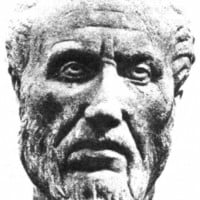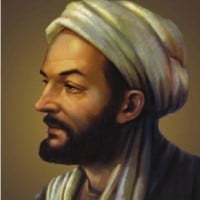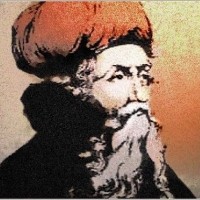Top 10 Most Influential Philosophical Schools of Thought
Philosophical schools of thoughts that have been inspiring different kinds of philosophers.
Aristotelianism has been one of the most influential philosophical branches ever. Aristotle is known for his philosophical thought which was a direct refutation of Plato's theory of forms. Aristotle is known for paving the path of Western philosophical thought, Empiricism. According to Aristotle's epistemology, knowledge only comes from this physical world. Therefore, the ultimate truth doesn't emanate from the abstract world which Plato and Socrates had believed.
Aristotelian philosophy has been inspiring philosophers all the way down from the Hellenistic philosophy to Arabic philosophy and then to Scholastic philosophy. Aristotle ideas also deal with several topics such as metaphysics, ethics, biology, physics, politics or even music. Aristotle is also known for proposing the idea of the first cause which is also known as the unmoved mover which has been a principle theory for the medieval philosophers for proving the existence of God.

Neoplatonism is the philosophical doctrine of the great philosopher Plotinus. Plotinus was a Hellenistic philosopher for bringing the theory of the divine intellect or the transcendent absolute One. Nobody is sure where exactly did Plotinus get the idea of this. But it could be his own interpretation of Platonic philosophy which deals which the ultimate abstract world.
Anyway, Neoplatonism is perhaps the most widely read philosophical school of thought after Aristotelian philosophy. Neoplatonism has been an integral part of Christian theology. Neoplatonism also reached to Scholastic philosophy through Islamic philosophy. Philosophers like Ibn Sina or Al Farabi used the idea of "the absolute, transcendent One and the emanation of different kinds of intellects" from Neoplatonic philosophy.
Although Neoplatonism has been rejected during the Ibn Rushd and High Scholasticism but the best uses of Neoplatonism has been in the mystical philosophy. Scholars like Ibn Arabi or Meister Eckhart's philosophies reflect some sort of philosophy of Neoplatonism. Neoplatonism is still used by the traditionalists philosophers such as Rene Guenon or Seyyed Hossein Nasr.
Personally, I believe it is a much more important philosophy for the theistic philosophy than the Aristotelian philosophy.
Pythagoreanism is perhaps is one of the oldest philosophical schools of all time. Pythagoras like Socrates didn't write anything of his own. But, Pythagoras is known for integrating the mathematics and philosophy. Pythagoras perhaps also travelled to places like Ancient Iraq/Iran, Egypt or even India. He might've borrowed many philosophical ideas from the East. Or its possible that Pythagoras developed some philosophies of his own.
Pythagoras is known for one of the oldest philosophers to deal with Dualism. Dualism in philosophy means, the separation of mind and body. Pythagoras also believed in "Transmigration of Souls". Where souls enter into another creation after the death.
Pythagorean philosophy is known for blending into Platonic philosophy. Especially for the mathematics. But one of the reasons I put it so high is because the later sub-branch of Pythagorean philosophy, the Neo-Pythagoreans, helped shaping the idea of Christian philosophy. It's a little bit of controversial, but the idea of trinity and the divinity of the Jesus Chris and the Holy Spirit is connected to Middle Platonism and as well as Pythagorean philosophy.

Its more likely a movement. Anyway whether you like it or not Marxism has been influential in the philosophical world. Everybody knows it. It's the ideas of karl Marx for his political materialistic and atheistic beliefs grounding on principle of Socialism.
Karl Marx was one of the greatest thinkers ever lived. He discovered the laws of social development, described the mechanisms of functioning of capitalism.
Screw Marxism. Dreamer philosophy in my opinion. It will never be achieved.

Scholasticism is the Christian philosophical school of thought in the west. It was based on the Aristotelian philosophy to defend the Christian theology. It has different sub-branches of its own. The scholastic philosophy however slowed down in the end but it was a very influential philosophical school of thought.

While most people admire Socrates but many of them don't know who created the idea of Rhetoric thought. Rhetoric field of study is the art of persuasion. Sophists used to take money and debate between themselves on various topics.
Socrates was inspired by them for the Rhetoric argument and getting his idea of "Socratic Method".

Avicennism is based on the philosophical school of thought of the Muslim philosopher Ibn Sina. "There are two kinds of Avicennism", says Seyyed Hossein Nasr, "The Latin Avicennism and the Islamic Avicennism". The Latin Avicennism is the works of Aristotelian philosophy. On the other hand, The Islamic Avicennism is the spiritual or the Mystical works of Ibn Sina.
Avicennism has been a very influential philosophical school of thought in the West. Ibn Sina is known for the proposing the idea of "The Proof of the Truthful". Which is a philosophical concept based on the Quranic essence of Allah/God to prove the idea of a God. This argument was the most important argument in the west for proving the God.
If not his Metaphysics but Ibn Sina is known for the natural philosophy.

Averroism is the philosophical school of thought named after Averroes. Averroes's real name is Ibn Rushd. He is a Muslim jurist and philosopher. He is known for defending the ideas of Aristotle's and integrating it into Islamic theology. Averroism has been denied in Muslim world but was very influential in the Christian and Jewish philosophy.
The idea of Averroism is that reason and revelation cannot collide. Muslims in the Persia deviated from the path of true Aristotelian philosophy, Ibn Rushd here tried to defend the best of his teachings. Ibn Rushd rejected any kind of Neoplatonic philosophy.
While even though St. Thomas Aquinas was a critic of Ibn Rushd but he was also inspired by the ideas of Ibn Rushd and just like him he also believed there cannot be no contradiction between "Fate and Reason".

Kantianism is the philosophy of Immanuel Kant. Immanuel Kant was known for triggering the idea of German Idealism. Which later took a radical turn by the philosopher Hegel. Kant's prominent ideas include philosophies like Categorical Imperative. Kant is also known for his Moral Absolutism.

Akbariyya is a school of though named after the Muslim scholar "Shaykh Al Akbar". Which is the great Shaykh, Ibn Arabi. It's the philosophical doctrines of Ibn Arabi. Ibn Arabi was known for his mystical philosophy. Basically Akbariyya is still active and has been practiced by many Sufis.
Akbariyya school of thought inspired lots of philosophers such as Mulla Sadra and his philosophical thought "Transcendent theosophy".

